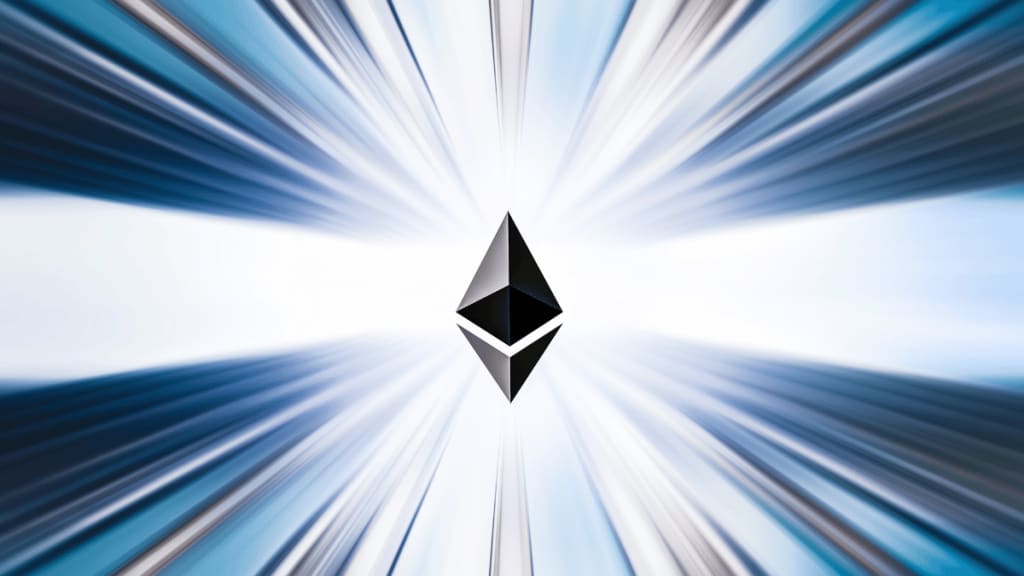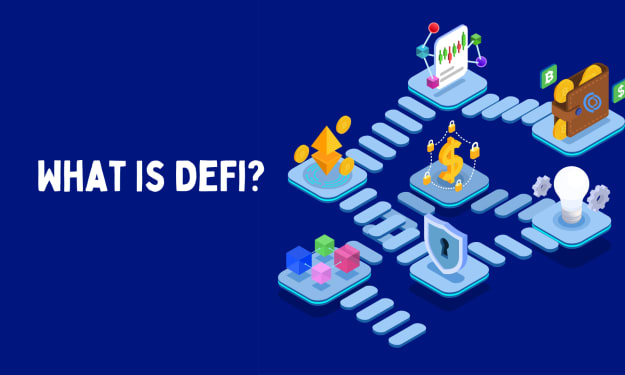Ethereum Token Development Services - A Beginner's Guide
Ethereum Token Development Services

In the world of blockchain technology, Ethereum has emerged as a leading platform for developing decentralized applications (dApps) and issuing digital tokens. Ethereum tokens have gained significant popularity due to their versatility and potential for transforming various industries. Whether you are a business owner or an entrepreneur looking to explore the possibilities of blockchain, understanding Ethereum token development services is crucial. This comprehensive beginner's guide will provide you with insights into the world of Ethereum tokens, their benefits, and how they can be utilized to drive innovation and growth.
What are Ethereum Tokens?
Ethereum tokens are digital assets built on the Ethereum blockchain. They can represent various types of assets, such as currencies, utility tokens, or even ownership rights. Unlike cryptocurrencies like Bitcoin, Ethereum tokens are not native to the Ethereum network but are instead developed using the Ethereum blockchain's smart contract functionality.
Ethereum tokens are highly programmable and customizable, allowing developers to create tokens with specific functionalities tailored to their intended use case. These tokens can be utilized within decentralized applications, enabling various interactions and transactions within the ecosystem.
The Importance of Ethereum Token Development Services
Ethereum token development services play a crucial role in enabling businesses and individuals to leverage the power of blockchain technology. These services provide the necessary expertise and tools to create, deploy, and manage Ethereum tokens effectively. By utilizing professional token development services, businesses can unlock numerous benefits, including:
Enhanced Security: Expert token development services ensure that the tokens are built with robust security measures, minimizing the risk of hacking or fraudulent activities.
Customizability: Professionals can tailor the token's features and functionalities to align with specific business requirements, enabling businesses to create unique and innovative solutions.
Compliance: Token development services can ensure that the created tokens adhere to regulatory frameworks, providing legal clarity and compliance with relevant laws and regulations.
Integration Support: Professionals can assist in integrating tokens into existing systems or developing compatible wallets and applications to facilitate seamless token utilization.
Industry Insights: Token development service providers possess industry knowledge and insights that can help businesses make informed decisions and stay ahead of the competition.
Types of Ethereum Tokens
There are various types of Ethereum tokens, each serving a specific purpose within the blockchain ecosystem. The most common types of Ethereum tokens are:
ERC-20 Tokens: ERC-20 is the most widely adopted token standard on the Ethereum blockchain. These tokens are fungible, meaning they are interchangeable and have the same value. ERC-20 tokens are extensively used for crowdfunding campaigns, token sales, and as utility tokens within dApps.
ERC-721 Tokens: ERC-721 tokens, also known as non-fungible tokens (NFTs), are unique digital assets that represent ownership or proof of authenticity of a specific item. They have gained significant popularity in the art and gaming industries.
ERC-1155 Tokens: ERC-1155 tokens are a hybrid of ERC-20 and ERC-721 tokens. They can represent both fungible and non-fungible assets, allowing for greater flexibility in token design. These tokens are widely used in gaming and blockchain-based marketplaces.
How to Create an Ethereum Token
Creating an Ethereum token involves several steps, and it is recommended to seek professional assistance to ensure a smooth and secure token development process. Here is a high-level overview of the token creation process:
Define Token Specifications: Determine the token's name, symbol, total supply, decimals (if applicable), and other relevant parameters based on your project requirements.
Develop Smart Contract: Write a smart contract using Solidity, the programming language of Ethereum. The smart contract will define the token's functionalities and rules.
Test and Deploy: Thoroughly test the smart contract for any vulnerabilities or bugs. Once the contract is deemed secure, deploy it on the Ethereum blockchain.
Token Distribution: Allocate the token supply as per your project requirements. This may involve private sales, public sales, airdrops, or other distribution methods.
Token Management: Implement mechanisms to manage and control token transfers, token burns (if necessary), and other functionalities as required.
Smart Contracts and Ethereum Token Development
Smart contracts are self-executing contracts with the terms of the agreement directly written into code. They play a vital role in Ethereum token development, as they define the behavior and rules of the tokens. Smart contracts are executed on the Ethereum Virtual Machine (EVM), ensuring transparency, immutability, and decentralization.
When developing Ethereum tokens, developers create smart contracts that handle token transactions, ownership transfers, and other operations. These smart contracts facilitate secure and trustless interactions between token holders, ensuring transparency and eliminating the need for intermediaries.
Use Cases of Ethereum Tokens
Ethereum tokens have found applications across various industries, revolutionizing traditional processes and introducing new possibilities. Some prominent use cases of Ethereum tokens include:
Decentralized Finance (DeFi): Ethereum tokens are at the heart of the DeFi ecosystem, enabling users to access lending, borrowing, and other financial services without relying on traditional intermediaries.
Gaming and Non-Fungible Tokens (NFTs): Ethereum tokens, particularly ERC-721 and ERC-1155 tokens, have transformed the gaming industry by introducing unique in-game assets and enabling players to trade, own, and monetize virtual items.
Supply Chain and Traceability: Ethereum tokens can be utilized to track and verify the provenance of goods, ensuring transparency, and reducing the risk of counterfeiting in supply chain management.
Tokenized Assets: Ethereum tokens have enabled the tokenization of real-world assets such as real estate, art, and intellectual property, making them more accessible for fractional ownership and trade.
Governance and Voting: Ethereum tokens can be used to facilitate decentralized governance models, enabling token holders to participate in decision-making processes and vote on proposals.
Tokenomics: Understanding Token Economics
Tokenomics refers to the economic system and principles behind a token. It encompasses various aspects such as token supply, distribution, utility, and value. Understanding token economics is crucial for creating a sustainable token ecosystem and ensuring long-term viability. Some key components of tokenomics include:
Token Supply: Determine the total supply of tokens and whether it will be fixed or inflationary/deflationary.
Token Distribution: Plan the distribution of tokens among stakeholders, considering factors such as private/public sales, team allocations, community rewards, and token burns (if applicable).
Utility and Functionality: Define the purpose of the token within the ecosystem and how it can be utilized. This may include staking, governance, access to services, or discounts.
Token Value: Various factors can influence token value, including demand and supply dynamics, scarcity, utility, and market sentiment. Tokenomics should consider mechanisms to maintain a stable and balanced token value.
Incentive Structures: Design incentive mechanisms to encourage token holders' active participation, engagement, and long-term commitment to the ecosystem.
Security Considerations for Ethereum Tokens
Security is of utmost importance when it comes to Ethereum token development. While the Ethereum blockchain itself is secure, vulnerabilities can arise from poorly written smart contracts or inadequate security measures. Here are some essential security considerations:
Secure Smart Contract Development: Ensure that the smart contracts are thoroughly audited and tested for potential vulnerabilities and bugs. Follow best practices and adhere to standardized coding patterns.
Access Control and Permission Management: Implement robust access control mechanisms to prevent unauthorized access to tokens and sensitive operations.
External Dependency Management: Be cautious while integrating external dependencies into smart contracts, as they can introduce potential security risks. Only use trusted libraries and verify their security practices.
Secure Key Management: Safeguard private keys associated with token contracts and ensure proper key management practices are followed to prevent unauthorized access or theft.
Regular Security Audits: Conduct regular security audits to identify and mitigate any potential vulnerabilities. Stay updated with the latest security practices and consider engaging third-party security firms for thorough audits.
Token Integration and Wallet Development
Integration of Ethereum tokens into existing systems and applications is crucial for their effective utilization. Additionally, developing secure and user-friendly wallets to store and manage tokens is essential. Some key considerations for token integration and wallet development include:
API Integration: Integrate token functionality into existing platforms, applications, or websites, allowing users to interact with tokens seamlessly.
Wallet Development: Create secure and user-friendly wallets that support the storage, transfer, and management of Ethereum tokens. Consider compatibility with different operating systems and devices.
User Experience: Prioritize user experience in wallet development, making it intuitive and easy to navigate. Provide clear instructions and support for token transactions and other operations.
Security Features: Implement robust security features in wallets, such as multi-factor authentication, encryption, and backup and recovery mechanisms, to protect users' tokens and private keys.
Third-Party Integrations: Explore integration with external services, such as decentralized exchanges (DEXs) or other DeFi platforms, to enhance token functionality and utility.
Future Trends in Ethereum Token Development
The field of Ethereum token development continues to evolve rapidly, driven by technological advancements and emerging trends. Some of the key trends and developments to watch out for in the future include:
Layer 2 Scaling Solutions: Layer 2 solutions like Optimistic Rollups and zkRollups are expected to significantly improve scalability and reduce transaction costs on the Ethereum network, enabling more efficient token transfers and interactions.
Interoperability: Efforts are underway to enhance interoperability between different blockchains, allowing for seamless token transfers and communication across multiple networks.
Token Standard Upgrades: New token standards and improvements to existing standards may emerge, offering enhanced functionalities, security features, and interoperability.
DeFi Innovations: The DeFi ecosystem is expected to continue expanding, with new protocols, lending platforms, and decentralized exchanges being developed, further increasing the utility and value of Ethereum tokens.
Regulatory Developments: As blockchain technology gains more mainstream adoption, regulatory frameworks around Ethereum tokens are likely to evolve, providing clearer guidelines and fostering increased institutional participation.
Frequently Asked Questions (FAQs):
Q1: What is the difference between Ethereum and Ethereum tokens?
A1: Ethereum is a blockchain platform, whereas Ethereum tokens are digital assets built on the Ethereum blockchain. Ethereum tokens utilize the functionality provided by the Ethereum platform to enable various functionalities and interactions.
Q2: Can I create my own Ethereum token without any technical knowledge?
A2: While it is possible to create an Ethereum token without technical knowledge using token creation platforms, it is recommended to seek professional assistance to ensure the security and effectiveness of the token.
Q3: Are Ethereum tokens secure?
A3: Ethereum tokens can be secure if developed following best practices, thoroughly audited, and maintained with regular security updates. However, vulnerabilities can arise from poorly written smart contracts or inadequate security measures.
Q4: How can businesses benefit from Ethereum token development services?
A4: Businesses can benefit from Ethereum token development services by leveraging blockchain technology to enhance security, transparency, and efficiency in their operations. Tokens can be used for various purposes, such as crowdfunding, loyalty programs, or supply chain management.
Q5: Can Ethereum tokens be exchanged for fiat currencies?
A5: Ethereum tokens can be exchanged for fiat currencies or other cryptocurrencies on various exchanges that support token trading. The liquidity and availability of exchange options may vary depending on the specific token.
Q6: Are Ethereum tokens only used within the Ethereum ecosystem?
A6: Ethereum tokens are primarily used within the Ethereum ecosystem, but they can also be utilized in interoperable environments and integrated with other blockchain platforms through cross-chain solutions.
Q7: Can I develop my own token standard on Ethereum?
A7: While Ethereum has established token standards like ERC-20, ERC-721, and ERC-1155, it is possible to develop custom token standards that cater to specific requirements. However, utilizing established standards ensures compatibility and ease of integration.
Q8: How can I ensure the success of my Ethereum token project?
A8: Success in an Ethereum token project depends on various factors, including market demand, solid token economics, effective marketing, and community engagement. Thorough planning, professional assistance, and staying updated with industry trends can contribute to the project's success.
Q9: What is the cost involved in developing an Ethereum token?
A9: The cost of developing an Ethereum token varies depending on several factors, such as the complexity of the token's functionalities, smart contract development, security audits, and additional services like wallet development or token marketing. It is advisable to consult with token development service providers for accurate cost estimates.
Q10: How can I promote my Ethereum token?
A10: Promoting an Ethereum token involves various strategies, including marketing campaigns, community building, engaging with influencers and media outlets, listing on reputable exchanges, and showcasing the token's utility and benefits to potential users and investors.
Conclusion:
Ethereum token development services offer businesses and individuals the opportunity to leverage blockchain technology and tap into the vast potential of decentralized applications and digital tokens. This beginner's guide has provided valuable insights into Ethereum tokens, their benefits, and the processes involved in their creation and utilization. By understanding the fundamentals of Ethereum token development, businesses can explore innovative solutions, drive growth, and unlock new possibilities in the ever-evolving blockchain landscape.
About the Creator
Dean Johns
I'm Dean Johns, CEO of Shalong Pvt Lmt. And also a Leading crypto inverstor over Past 8 Years. Giving Tips & Tricks to all People about Crypto Inverstment who Wants to inverst Your Money on Crypto in Future Days.






Comments
There are no comments for this story
Be the first to respond and start the conversation.